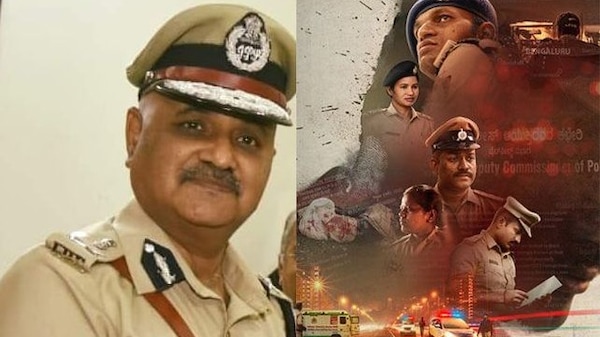Exclusive! Karnataka state top cop Praveen Sood decodes Netflix's Crime Stories: India Detectives
The four-part Netflix documentary, which features a camera crew following a team from the Bengaluru Police in the investigation of four gritty cases, is an exploration of human relationships, says Praveen Sood, Karnataka state DGP and IG. The show will stream starting September 22.

Last Updated: 10.00 PM, Sep 20, 2021
On Wednesday, Netflix will release its first-ever original Kannada production, the four-part true-crime documentary, Crime Stories: India Detectives. The official description on the OTT platform's official page reads, “Cameras following Bengaluru police on the job offer a rare glimpse into the complex and challenging inner workings of four major crime investigations.”
In an exclusive conversation with OTTplay, Karnataka State DGP and IG, Praveen Sood explains the series and its objective. “Crime Stories: India Detectives is a compilation of real stories, and not re-construction, of four cases, right from the moment of the first intimation of the crime in the control room to their conclusion. The team followed our sleuths to the scene of crime, through the course of the entire investigation. The significance of these stories is that they show the human side of policing. It is not about blowing our own trumpets and showing that we solved so and so case. They are very touching stories and you will realise how complicated human relationships are and how difficult it is to unravel them, investigate the crime and find the culprit. All four stories are very intense, and were filmed way back in 2019 and early 2020 in Bengaluru city,” he says.
The idea for the show, adds Mr Sood, was mooted by Netflix, having done similar documentaries in other cities of India. “If you look at television content, there are hundreds of crime stories, both real and fictional. This show is not about the crime, the investigation or how it is solved – only three out of the four stories have conclusions. It explores the complexities of urban cities in terms of the human aspect, how complicated crimes and their motives are becoming, and its impact on the investigative process. It is about how humane one has to be while dealing with such situations. For instance, the perpetrator may have a so-called legitimate rationalisation for having committed said crime, in this case, a murder,” he explains.
The objective, says the state’s top cop, is not to project the police department in a good or bad light. “This is not a PR activity. This is an actual depiction of how we function and it is up to the people to decide whether we are right or wrong. We were okay with the Netflix pitch, because they wanted to do something in real time with no manipulation. Also, since real accused parties in these cases were involved, their consent was also sought for filming,” adds Mr Sood.
How did they zero in on these four particular cases? “These four stories were not cherry-picked by us. In fact, we let the crew follow our team for more cases, but not all were as intriguing as these final four,” he reasons. But aren’t there risks involved in allowing a set from the general public unfettered access to police procedures? “All the cases that are a part of this series are currently in a court of law, with the police having done its due diligence. Normally, cases are out in the public domain only when they become the property of the courts. Nothing has been revealed during the investigation. In fact, the footage remained sealed until such time that the investigations were closed at our end,” he says, adding, “When I watched the series, there were moments when I thought that maybe something could have been avoided because it could potentially show the department in a bad light, especially as far as the use of cuss words go. But I realize it is an important aspect of the narrative, because it is also an introspection of the officers who were dealing with these cases. The show explores the dilemmas they faced in the course of the investigation; both in the office and at home.”
On a parting note, the DGP and IG says, “Once you see all four stories, you will realise just how moving and thought-provoking they are; the policing is incidental.”
Subscribe to our newsletter for top content, delivered fast.
